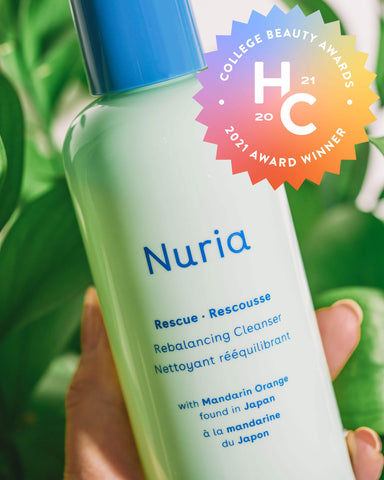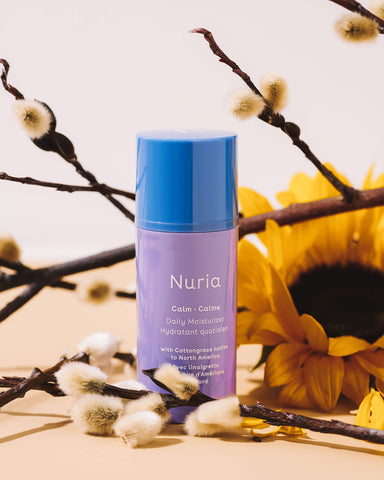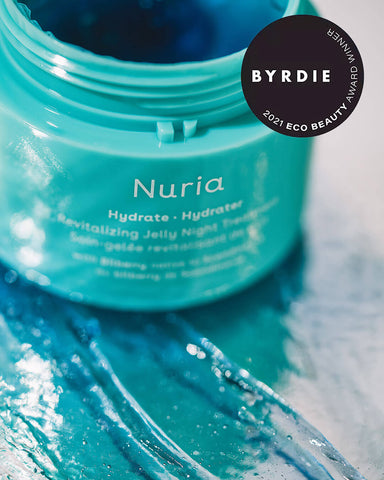
Pre, Pro & Postbiotic Skin Care
We’ve all heard of probiotics— the live organisms or “good bacteria” that help keep our body healthy. And yes, that’s why we’re told to eat yogurt; it’s rich in these micro bugs which boost our digestive system. But probiotics aren’t only important for a happy gut; they are vital to all our organs, including our skin. And here’s something else you might not know: in addition to probiotics, we also have prebiotics and postbiotics. Without getting too technical, let’s learn why these three classes of microbes are important in skin care.
The microbiome of the skin
On the surface of the skin lies a warzone of bio-invaders: germs, toxins, allergens—all trying to harm the dermis. This collection of live matter creates the microbiome of our skin, a delicate environment that needs protection against pathogens to regulate inflammation and infection, explains Mary-Margaret Kober, MD, FAAD, a board-certified dermatologist.
The skin’s microbiome, if left unprotected, can invite space for bad bacteria, fungi, and other impurities to thrive. This condition will weaken the skin’s defensive barrier, making it drier and more sensitive to acne, eczema, UV damage, and wrinkles.
To strengthen our skin’s defense system, research suggests that skin care products with prebiotics, probiotics, and postbiotics can maintain a healthy balance of microbes.
The role of pre, pro and postbiotics
Pre, pro, and postbiotics act as our “microbial soldiers” which defend our skin from external invaders. Together, they help create the ideal environment for the skin to thrive by maintaining a pH of around 5.5 (slightly acidic). At this pH level, the skin can maintain its protective barrier, in combination with natural oils, to function properly as an organ.
Let’s examine each one in more detail and why they’re important in skin care.
Probiotics in skin care
Probiotics are healthy microbes that defend our dermis from an overgrowth of “bad bacteria." So if you’ve got sensitive or reactive skin, chances are that your skin's protective defenses are weakened by an imbalance of live organisms.
By restoring this balance with probiotics, your skin can build a stronger moisture barrier to defend itself against free radicals (unstable oxygen molecules that steal energy from our healthy cells). The probiotics work by boosting our skin’s production of lipids (fats) that trap moisture, a sebum-based coating that naturally shields the debris from acne-causing bacteria and other intruders. In turn, you’ll preserve more of your skin’s collagen and delay signs of premature aging.
“People with eczema have lower levels of ceramides [lipids], so replacing it can be very important,” says Dr. Kober. She suggests applying probiotic skin care products to reduce acne outbreaks, manage dry skin, and eczema. The Rescue Rebalancing Cleanser, for example, is infused with Rice Water, a natural probiotic that is also rich in vitamins, working to calm troubled skin and brighten your complexion.
Prebiotics in skin care
Think of prebiotics as food for good bacteria. These nutritious compounds help support the growth of probiotics, maintaining the harmony of the skin’s microbiome.
Acne treatments like retinol and salicylic acid, however, can disrupt this delicate balance by harming the skin’s barrier function. As these intense exfoliating agents can be aggressive and irritating, they may leave the skin dry and unable to guard against bad bacteria. To restore harmony, skin care products with prebiotics act as defensemen for the probiotics. The result? A healthy environment for the microbiome of the dermis.
Special plant fibers offer prebiotics that nourish the good bacteria. That’s why superfoods like Bilberry and Safflower are emerging as star ingredients in the skin care industry. And it’s also why BYRDIE awarded Nuria’s Revitalizing Jelly Night Treatment as the 2021 Eco Beauty Winner. This innovative formula has both Bilberry and Safflower, two amazing sources of prebiotics, which help balance, hydrate, and replenish the skin for a plump and perky glow.
Postbiotics in skin care
Postbiotics are fermentation byproducts produced by good bacteria. Let’s break this process down in simple terms: when the probiotics feast on the prebiotics, they release new compounds which are technically “waste” products but have amazing benefits for your skin health.
“One example is antimicrobial peptides, or short-chain amino acids that naturally occur in the skin and boost its immunity and response to harmful organisms”, explains Richard Gallo, MD, PhD, Department of Dermatology at the University of California, San Diego. A great source is Shea Butter and Sunflower Oil extract—both which are rich in antioxidants and fatty acids, working to feed the good microbes and enhance water, sodium, and electrolyte absorption. “They really seem to be very important for the skin, and the body can’t make them,” Dr. Gallo says.
If your skin is dry or low on fatty acids, a topical treatment with postbiotics can give it a boost, says Dr. Gallo. The Calm Daily Moisturizer by Nuria is packed with Shea Butter and Sunflower Oil extract which work in harmony to protect the skin’s moisture barrier. The result is soft and supple hydration that improves skin elasticity, tone, and texture.
A great skincare routine must treat skin like its own living ecosystem. By focusing on products with pre, pro, and postbiotics (the holy trilogy of skin protection), your skin will learn to rebalance itself, revealing a more natural and healthy-looking you.
About the author, Jasmin Figueroa
Jasmin is an accomplished formulation scientist and skin health expert who has spent her career listening to consumers and developing products that rock. A founding member of the Nuria community, she loves traveling with her family, chilling with her friends at the beach, and will totally judge you if you don’t wear SPF.



